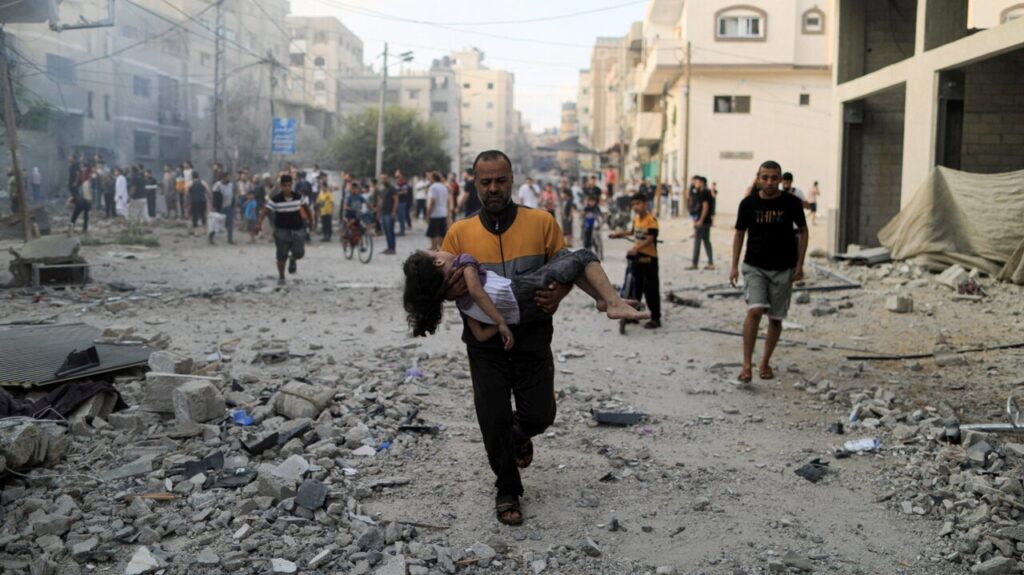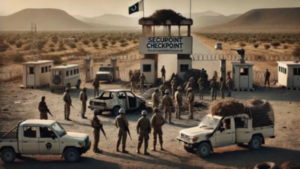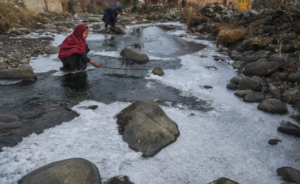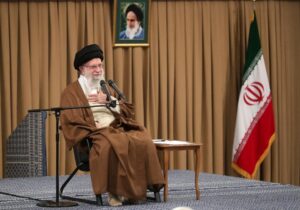Finding a way out of the Israel-Palestine crisis

Why a referendum might be the only solution
The concept of a two-state solution was first introduced in 1937 under the Peel Commission, during the period when Palestine was under British control. The commission’s plan allocated the poorest lands of Palestine, including the Negev Desert, the West Bank, and the Gaza Strip to the Arabs, while assigning the coastline and fertile agricultural land in the Galilee to the Jews. This same idea resurfaced in 1948, with Zionists secretly viewing it as a stepping stone towards establishing a “greater Israel,” encompassing Palestine, South Lebanon, Syria’s Golan Heights, the Hauran Plain, and Deraa.
Although the United Nations endorsed the two-state solution in 1948 by voting for a plan that would designate 55% of Palestine to a Jewish state, Zionists went on to expel at least 750,000 Palestinians from their homes and lands during the Nakba, claiming 78% of historic Palestine. The remaining 22% was divided into what are now the occupied West Bank and the besieged Gaza Strip. Since the establishment of the Israeli regime, the two-state solution was essentially set aside by its leaders.
In the Six-Day War of 1967, Israel occupied the Sinai Peninsula, the Golan Heights, the Gaza Strip, and the West Bank, including Eastern al-Quds, bringing a territory four times the size it had agreed upon in 1948 under its control. Although Israel has had to relinquish control of the Sinai Peninsula, it still maintains full control of the Golan Heights and exercises indirect control over the West Bank, given the establishment of a Palestinian government with little to no authority. In Gaza, while not under direct Israeli control, the population faces continual hardships due to recurrent bombardments and restricted access to essential resources.
Reinstituting the two-state solution would require Israel to dismantle over 200 illegal Jewish settlements that currently house more than 700,000 Israelis in the West Bank, as well as halt its ongoing military operations in the territory. Additionally, the blockade of the Gaza Strip would need to be lifted, and Eastern al-Quds would have to become the capital of a Palestinian State, or at least be internationalized.
Considering Israeli politicians’ growing support for new settlements and their uncompromising stance against Palestinians, it appears highly unlikely that the regime would agree to these conditions. Israeli officials are currently showing up on TV and social media, asking to turn Gaza into a “soccer field” as “Palestinians were essentially born to be killed.”
But even if the international community decides to greenlight a genocide in Gaza and let the regime try to capture the entire region, the recent 49 days of relentless attacks on the strip showed Israel might not be able to fulfill its plans no matter how vigorously it espouses them.
At the onset of the conflict in Gaza, Israel held the belief that its military strength far surpassed that of Hamas, envisioning its capability to both eliminate the group and establish a new government in the Palestinian territory. Yet, as the dust settled and Hamas fighters emerged from underground tunnels during the Qatar-mediated truce, releasing Israeli captives in Northern Gaza— previously claimed by Israel to be under full control—, it became evident that the regime had largely overestimated its military capabilities.
Simultaneously, Arab states like Jordan and Egypt, the first to recognize Israel as a state, strongly opposed any further displacement of Palestinians living in Gaza. With public opinion turning against Israel and the regime’s significant failure to defeat Hamas after nearly 50 days of unabating attacks, it is becoming increasingly apparent that Tel Aviv would not be able to sustain its assaults against Gaza much longer.
The recent Israeli offensive in Gaza not only failed to isolate Palestinians from resistance groups as intended, but it appears to have bolstered popular support for Hamas and similar movements, indicating a forthcoming increase in steadfast resistance. The Israeli regime, already in a state of disarray, seems poised to enter an unending cycle of conflict with no apparent end in sight.
So, what is the solution? How can people in Palestine and the entire region begin to live in peace?
At times of ceaseless conflicts, people must take lead
With the two-state solution out of the window and Israel being unable to eradicate Hamas, it is only expected that more violence will arise after the current conflict comes to an end. That’s because Israel has perpetuated a system that denies Palestinians living in the occupied territories the same rights as Jews, relegating them to second-class citizenship and subjecting the 1.6 million “Arab citizens of Israel” to systematic and active discrimination. Similarly, the 2.3 million in Gaza and 3.25 million Palestinians in the West Bank and East al-Quds continue to endure sustained violence and hardship under the regime. It is unsurprising that a population of over 7 million Palestinians would readily rise against discrimination and violence whenever the opportunity arises.
Few countries, including Iran, have advocated for an alternative solution to the two-state framework. Iran has recently revisited the idea of a referendum, proposed for the first time several years ago by the Leader of Iran’s Islamic Revolution, Ayatollah Seyed Ali Khamenei.
The referendum Iran proposes enfranchises all indigenous people of the land— regardless of their religious affiliation— to exercise their voting rights. Each individual, whether Muslim, Christian, or Jewish, is afforded a single vote to determine the resolution of the conflict and chart the future of Palestine. Importantly, oversight of the referendum would rest not with Israel or Palestinian groups such as Hamas but with an international body, such as the United Nations.
“When some of the world’s spokespersons talk about the Islamic Republic’s opinions regarding the region, they deceitfully say ‘Iran says that the Jews and the Zionists should be thrown into the sea’. No, this is something some Arabs have said before. We never said that. We don’t throw anyone into the sea. We say let the people decide,” Ayatollah Seyyed Ali Khamenei explained on Wednesday, noting that Palestinians might opt to coexist with European immigrants during the referendum, like how certain African countries decided to live alongside their former British colonizers once they had got rid of the occupation.
Referendums are regarded as one of the most democratic approaches to resolving protracted conflicts and have gained prominence in the modern era, prioritizing human lives over historical paradigms. Notably, over 600 referendums have occurred worldwide since 1973, including the pivotal referendum that concluded the apartheid regime in South Africa.
As there are approximately 7 million Palestinians residing in countries beyond Palestine, bringing the population of Palestinians to 14 million, a referendum within Palestinian lands might not align with the Israeli politicians’ interests. However, such an initiative could prove advantageous for the broader region, including the Jewish population. It might be easier for the Jewish population in the occupied territories to disengage from the regime on this critical matter, once they remember their historical coexistence with Muslims before the advent of Zionist incursions into Palestine. Moreover, continuing under Zionism does not guarantee the regime’s commitment to ensuring their security following any future resistance operations, as indicated by recent events. As many Jews were able to see recently, Israeli politicians would much rather kill Israeli captives themselves, than have to compensate for their freedom at the negotiating table.
It seems that at this point, with the absolute disregard of Israeli officials towards human lives, a referendum might be the only path towards a mutually agreeable future for the Muslims, Christians, and Jews of the region.








